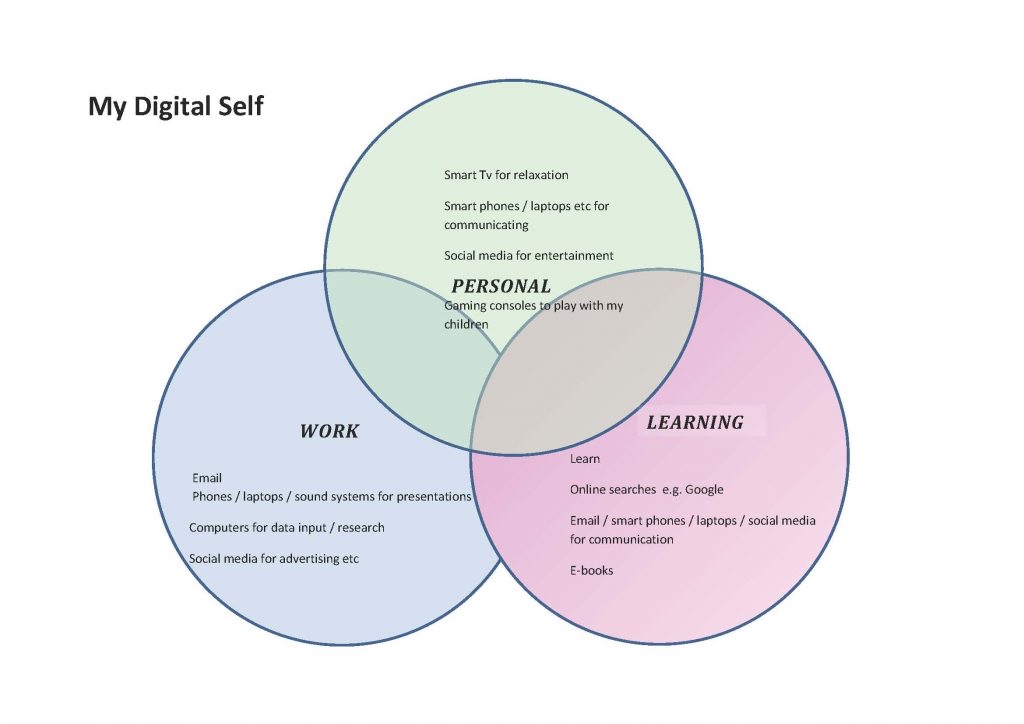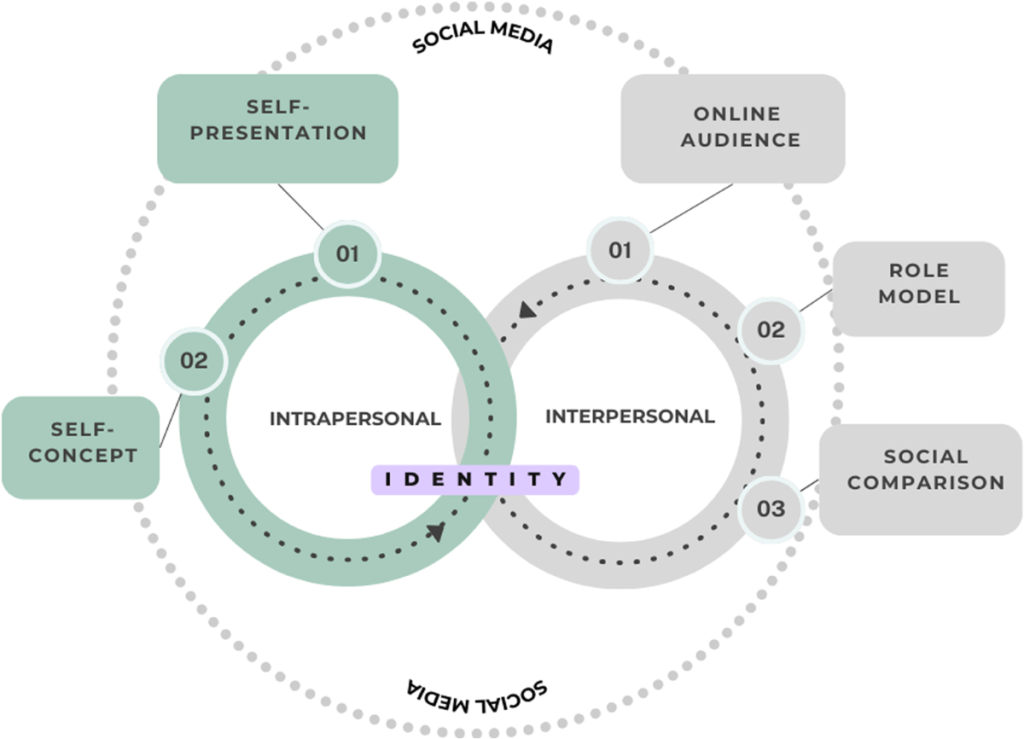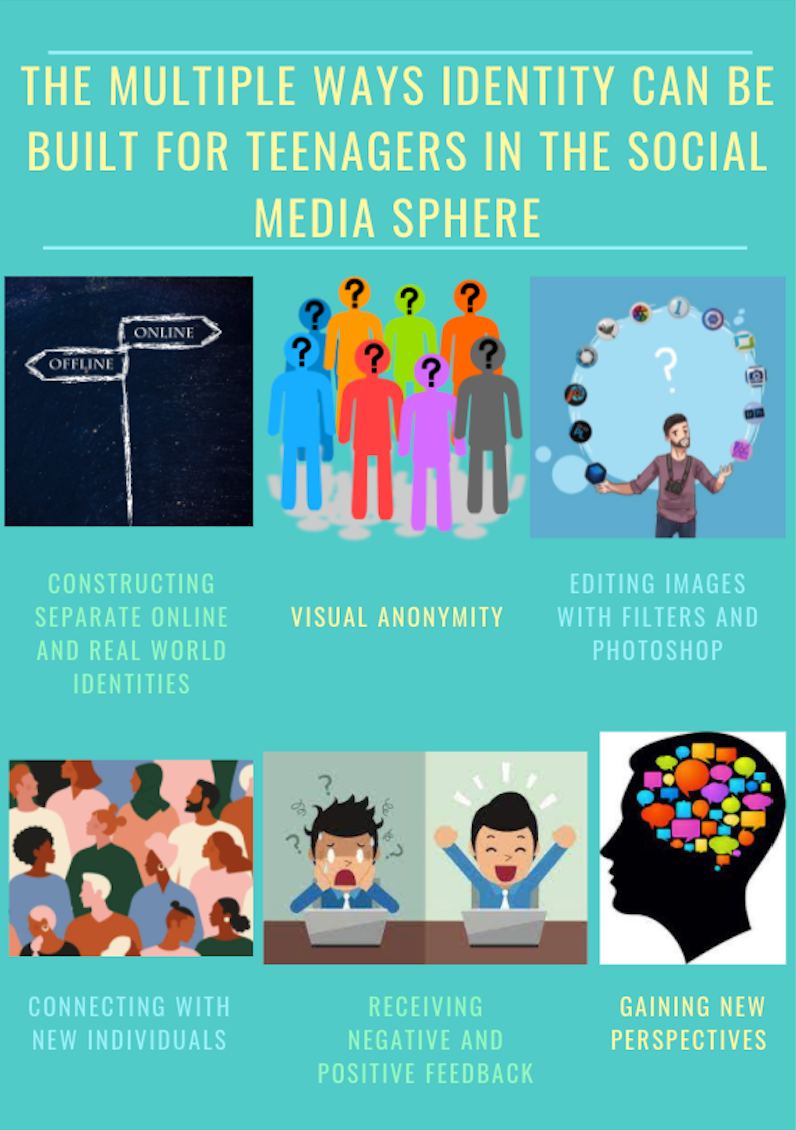We don’t just live in the world anymore — we live on the internet too. Every post, comment, selfie, and playlist adds a layer to our online identity. In many ways, our digital selves have become just as real as our offline ones. But what does it actually mean to construct an identity in the digital world? And how much of it is truly us?
According to Pacheco (2023), digital identity is a complex and evolving construct shaped by how people interact with technology and with one another online. Your LinkedIn profile might show a professional, polished version of you. Your TikTok, meanwhile, might highlight humour, hobbies, or creativity. Both are “you,” but both are carefully curated. In digital spaces, people can experiment — try on new roles, express sides of themselves that might not fit offline, or even build entirely new personas.

Social Media as a Mirror
Psychologists refer to this as the “social feedback loop.” A study published in Frontiers in Psychology found that people constantly reconstruct their online identities based on the reactions they receive — likes, comments, and shares all become integral to their self-definition.In Current Psychology (2024), researchers described this process as a “digital mirror” — one that reflects not just who we are, but who we want to be. For many, especially teens and young adults, this can be both empowering and exhausting: every scroll presents an opportunity to compare, perform, and redefine oneself.

The Double-Edged Sword of Digital Freedom
Digital spaces offer us the freedom to express ourselves — to explore identities that transcend geographical boundaries, gender norms, or social expectations. As Deh and Glođović (2018) write, digital space can offer “a second chance for self-presentation and creativity”.
However, this same freedom can also lead to identity fragmentation. We juggle multiple selves — the professional, the casual, the anonymous — and sometimes lose track of what’s authentic. There’s also the question of privacy: when algorithms shape what we see and how we’re seen, how much of our identity truly belongs to us?
Staying Real in a Filtered World
Maybe the goal isn’t to separate our “real” and “digital” selves, but to make them coexist honestly.
That means:
- Being intentional about what we share and why.
2. Recognising that validation ≠ value.
3. Keeping perspective — it’s okay to log off and be imperfect offline.
In the end, constructing identity in a digital world isn’t about performance — it’s about awareness. The more we understand how technology shapes us, the better our chances are of shaping it back.
Current Psychology (2024) Digital Identity and Adolescent Self-Concept. Current Psychology. Available at: https://link.springer.com/article/10.1007/s12144-024-05980-z
Deh, D. and Glođović, D. (2018) The Construction of Identity in Digital Space. AM Journal of Art and Media Studies, 16, pp. 101–111. Available at: https://fmkjournals.fmk.edu.rs/index.php/AM/article/download/361/204/1106
Frontiers in Psychology (2021) Online Identity Reconstruction: A Review. Frontiers in Psychology. Available at: https://www.frontiersin.org/articles/10.3389/fpsyg.2021.696552/full
Pacheco, C. (2023) Digital identity: an approach to its nature, concept, and functionalities. International Journal of Law and Information Technology. Available at: https://academic.oup.com/ijlit/article/doi/10.1093/ijlit/eaae019/7760180


Hey!!! This reflection captures the tension between freedom and fragmentation in digital identity really well. I like how it acknowledges that online spaces allow creativity and self-expression beyond social limits, yet also remind us of the risks of losing authenticity. The “digital mirror” idea feels especially true — it’s powerful how feedback shapes who we think we are. I also appreciate the practical advice at the end; it’s turning theory into something actionable. The reminder that validation isn’t the same as value really stands out — such an important point in today’s filtered world.
Hii I think this essay explains what media theory is and its golden rule: medium theory is not the same as media theory. It also explains the reasons for this. At first, I thought it was a similar question, but in fact, it is not. At the same time, it uses media theory in the digital age to explain why social media feels different from letters. I agree with you on this point. I think the feelings that letters and social media bring to people are completely different.
I am very agree that social media is a huge mirror, especially for young people. It has both advantages and disadvantages. It’s very difficult to remain genuine in a filtered world, and it’s easy to get trapped in it and fall into anxiety. But in fact, people’s lives and success have nothing to do with these.
I agree with how people use different social media apps to reflect different versions of themselves, hence the mirror relation. And I totally get how important it is to acknowledge the ups and downs of using social media to reflect on oneself and to not take it too seriously, while still not going off the rails. I sort of see internet personalities as just another way to code-switch, like how people act differently in school, at work, or at home. The difference is that with the internet, it’s more distant, so the change could be more drastic in a good or bad way. Like me, I don’t talk at all in person, but online, I talk a lot more specifically regarding video games or Discord. I don’t comment on things under videos or posts, but it’s a little freeing to just ramble online, and I don’t think what I think is different online than in person, but I 100% act differently, and I think both are 100% me.